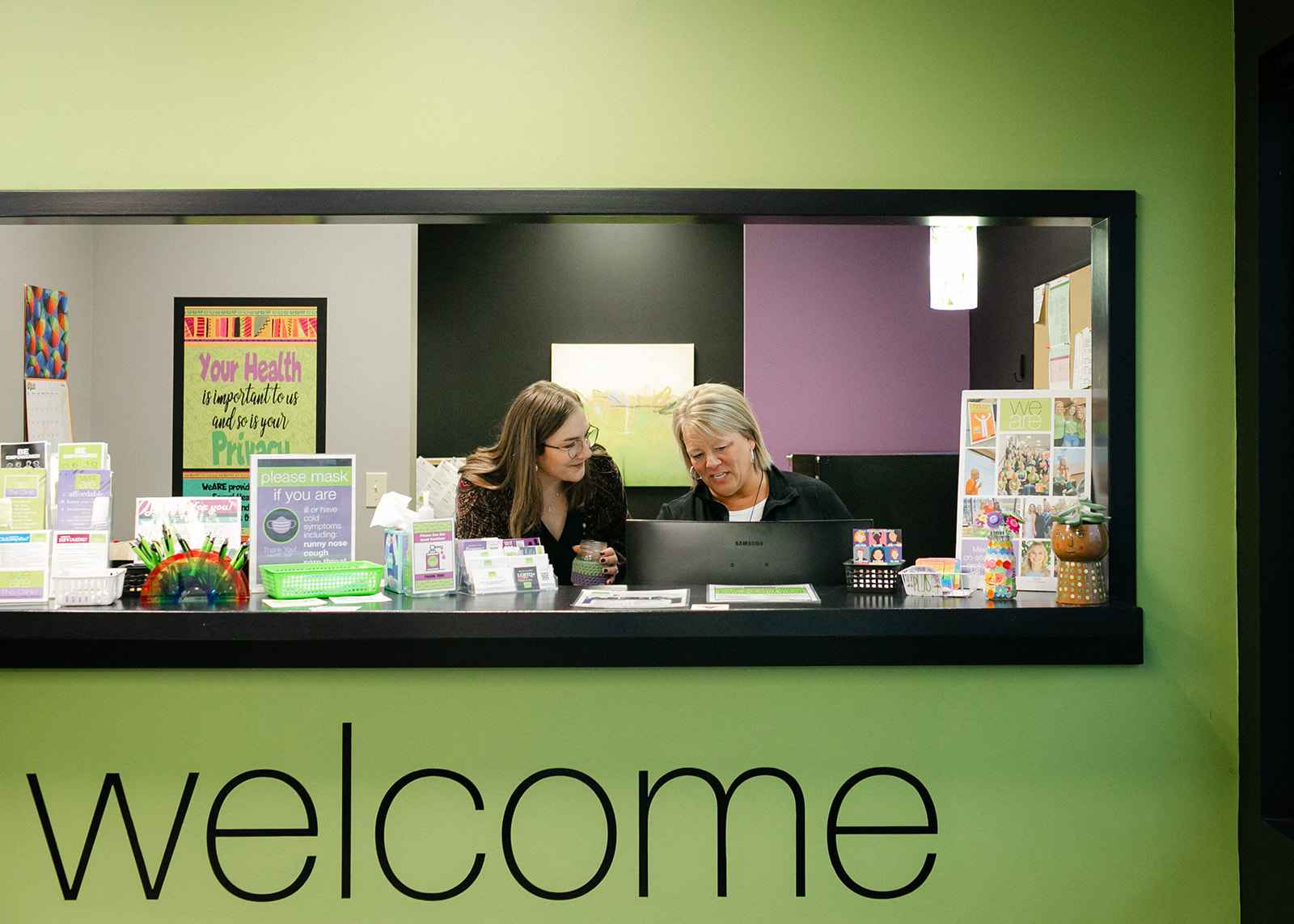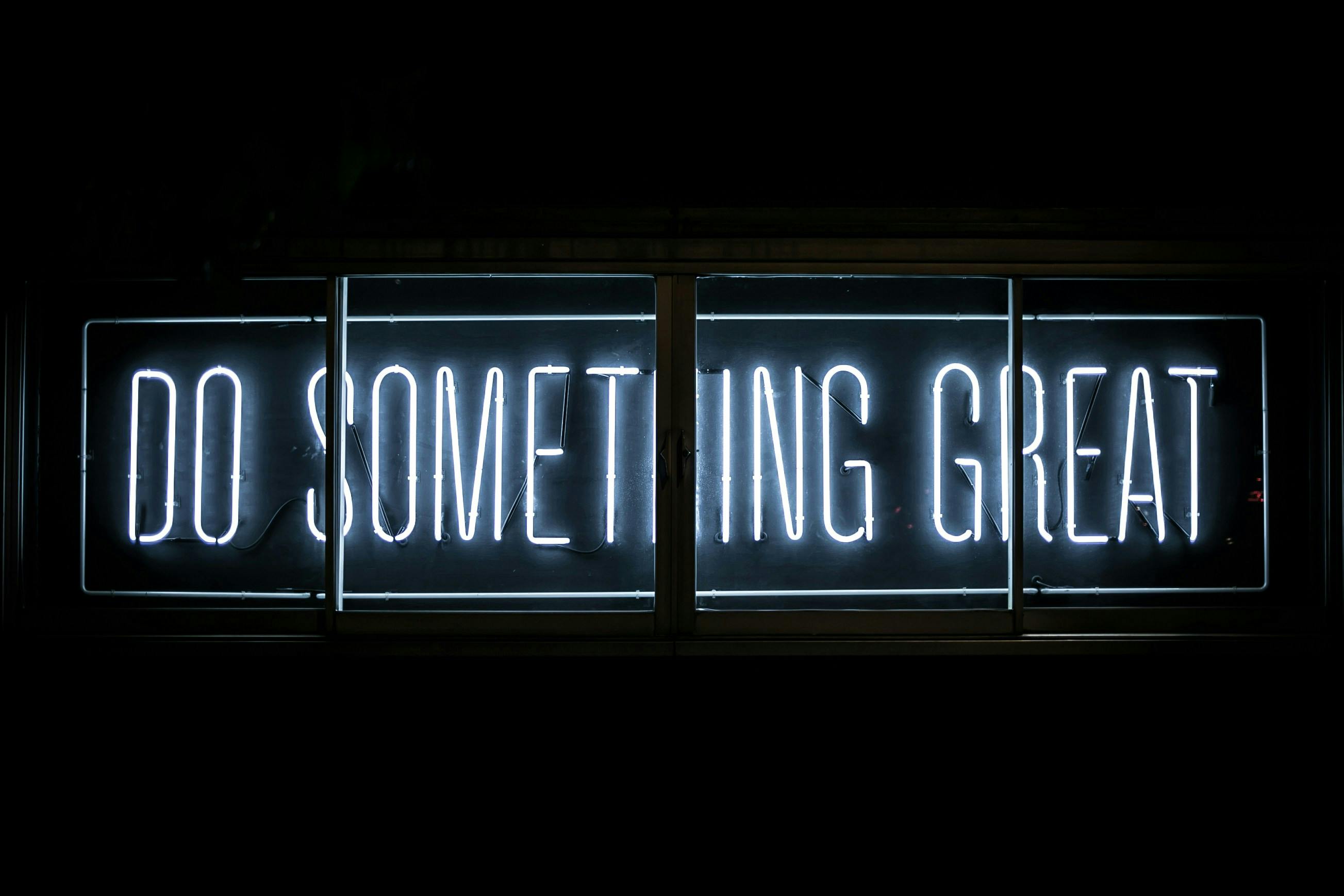Being a place for compassionate and inclusive sexual healthcare and education
Being a place for compassionate and inclusive sexual healthcare and education
Network member spotlight: WeARE - The Clinic (Brainerd, MN)
View the full July newsletter: Minnesota Health Equity Networks July Newsletter
Tucked in the middle of a strip mall on Oak Street near downtown Brainerd, WeARE – The Clinic boasts cheery bright green and purple signage. It's across the street from the Brainerd Family YMCA and about a block from the local high school. Welcoming and approachable, WeARE is the go-to resource for compassionate and inclusive sexual healthcare, transformational health education programming, and collaborations that serve reproductive justice in the Brainerd Lakes Area.
“Success happens every day at WeARE. We love creating the space for folks to ask questions, make their own medical decisions, and leave feeling taken care of and confident about their sexual health.” – Devon Charlier, Executive Director, WeAre - The Clinic

WeARE, which stands for Advocates for Reproductive Education, was formed in 2015 out of concern for high unintended pregnancy rates in Crow Wing County. The four women on the founding board, Becky Twamley, Susan Hadland, Julie Ingleman, and Cindy Moore, brought a wide range of skills and knowledge to the founding of WeARE, including expertise in women's health, global health, public health, pharmacy, reproductive health, marketing, and social service.
While WeARE’s initial focus was education, the clinic opened in October 2017, providing comprehensive reproductive healthcare services to the Brainerd Lakes Area and beyond. By 2018, they had over 300 patient visits. Five years later, in 2023, they had over 780 visits and more than 500 returning patients. WeARE also has longstanding partnerships with Central Lakes College and the Relationship Safety Alliance and operates outreach clinics to further serve community members. The WeARE education program, Let’sTalk, has also grown to meet the massive need in the community for evidence-based, medically accurate, inclusive, and developmentally appropriate information about sexual health, healthy relationships, consent, and identity. It reaches community members over 2,000 times annually.
“Positive youth development is foundational to the work done at WeARE. This means that we feel that young people are capable of making decisions, and they should be involved in decision-making processes.” – Devon Charlier
WeARE has an active Youth Advisory Council (YAC), and young people are deeply engaged in the organization's work. Authentic youth-adult partnerships are created and maintained. According to Devon, the key to positive youth development is a “strengths-based approach instead of a deficit-based approach."
"Youth have many strengths and are important members of our society. They care about what is going on around them and need to know that adults want to support them in their growing independence and responsibilities." - Devon Charlier
Devon defines reproductive justice by quoting a study, "Reproductive justice considers the ways that socioeconomic status, gender, and race shape reproductive health care experiences and health policy." That definition includes the right to have children, not to have children and to parent in safe and supportive environments.
"At WeARE, we work to integrate the reproductive justice approach into all that we do.” - Devon Charlier
When community members expressed a need for support to the parents and family members of folks with or exploring transgender nonbinary gender identities, WeARE offered support groups. They also asked for feedback, which revealed the need to build an increased level of trust and engagement with community members who are trans, nonbinary, and gender nonconforming. WeARE plans to continue to adapt its efforts to offer support through feedback from paid listening sessions. Using that input, they hope they can better support the entire regional community with WeARE’s education and healthcare services in the future.
“A further challenge is that we are living in a time of unprecedented levels of hate and violence toward folks with marginalized identities, coupled with intensifying restrictions on access to reproductive and sexual healthcare while rates of sexually transmitted infections (STIs) and unplanned pregnancies, especially among young people, continue to rise.” – Devon Charlier
It hasn't all been easy. WeARE experienced several roadblocks since its founding, including space, funding, and staffing challenges. They rely on state and foundation funding and generous individual donors to ensure they can serve each person who walks through their doors. Unfortunately, due to a lack of medically accurate reproductive and sexual health education and resources for students and people of all ages in communities like Brainerd, there is significant stigma and shame that surrounds the idea of sexual health. This has prevented many local funders and individuals from publicly supporting their work. As WeARE continues to provide needed services, they seek more support through funding opportunities, volunteers, and donations while adapting their strategies to meet the needs of their community.
“Our goal is to care for more patients and educate more people each year, and ultimately create a culture change across our community that is conducive to everyone thriving. Our focus keeps us grounded and connected to what's most important – serving the health and wellbeing of those who need us most in our region.” – Devon Charlier

Thank you for your contribution!
Help us reach out to more people in the community
Share this with family and friends